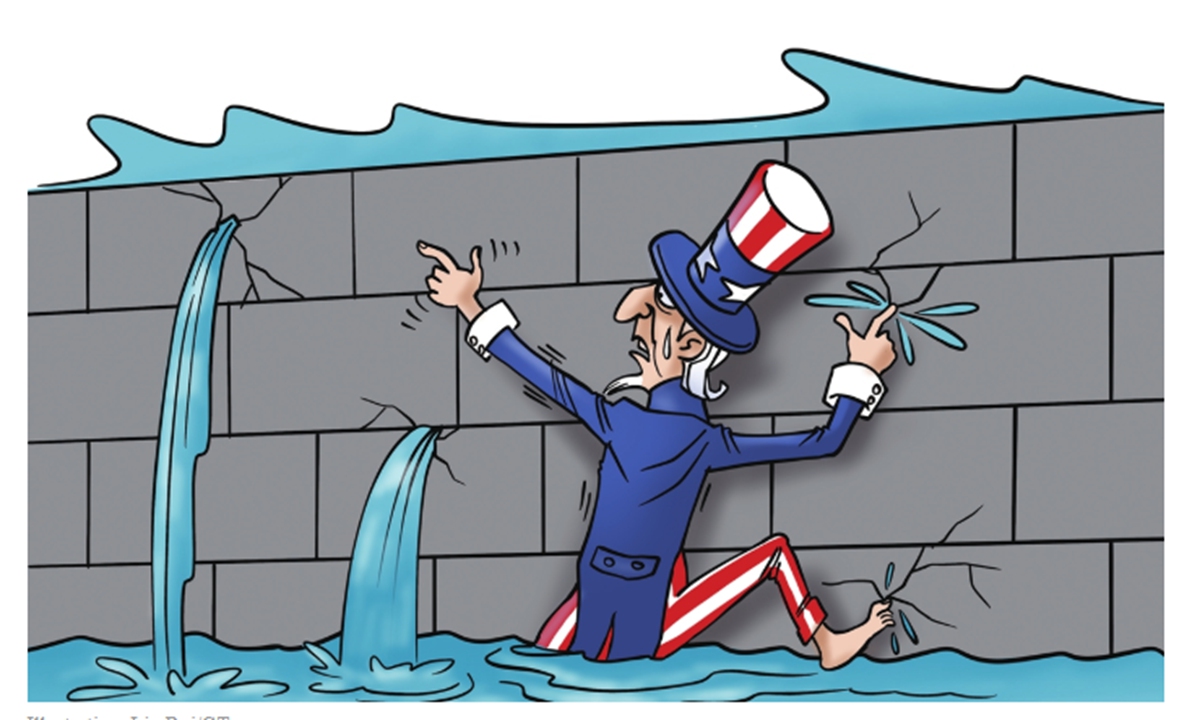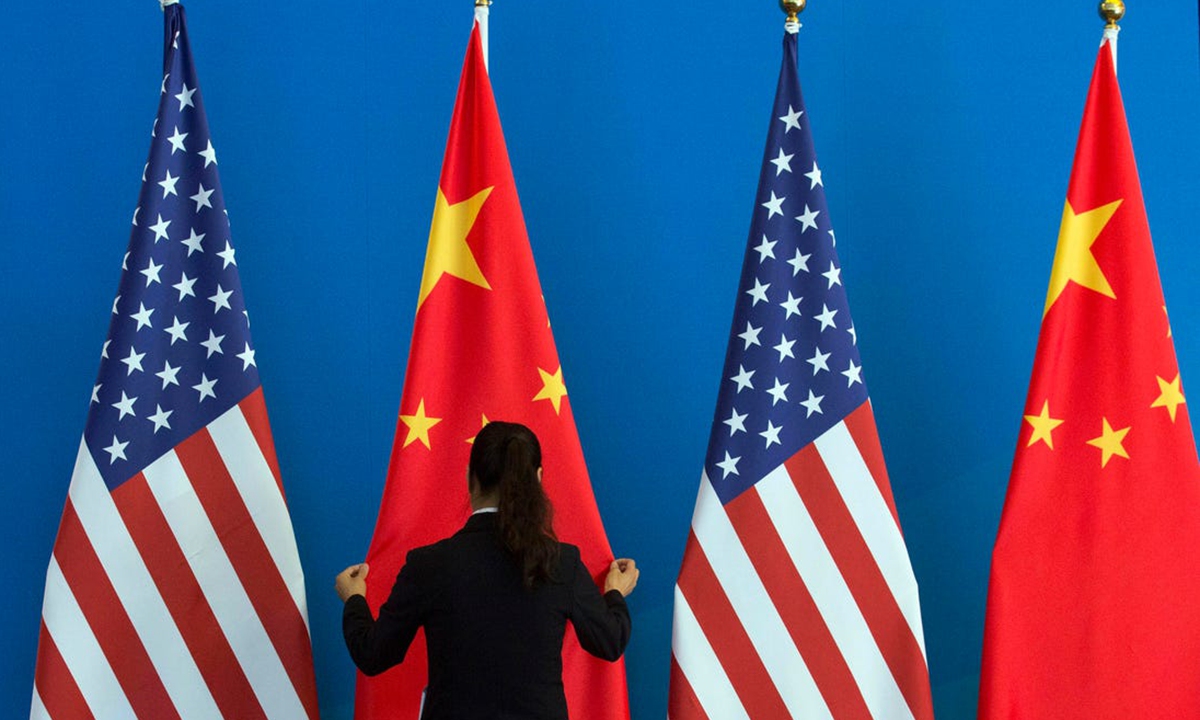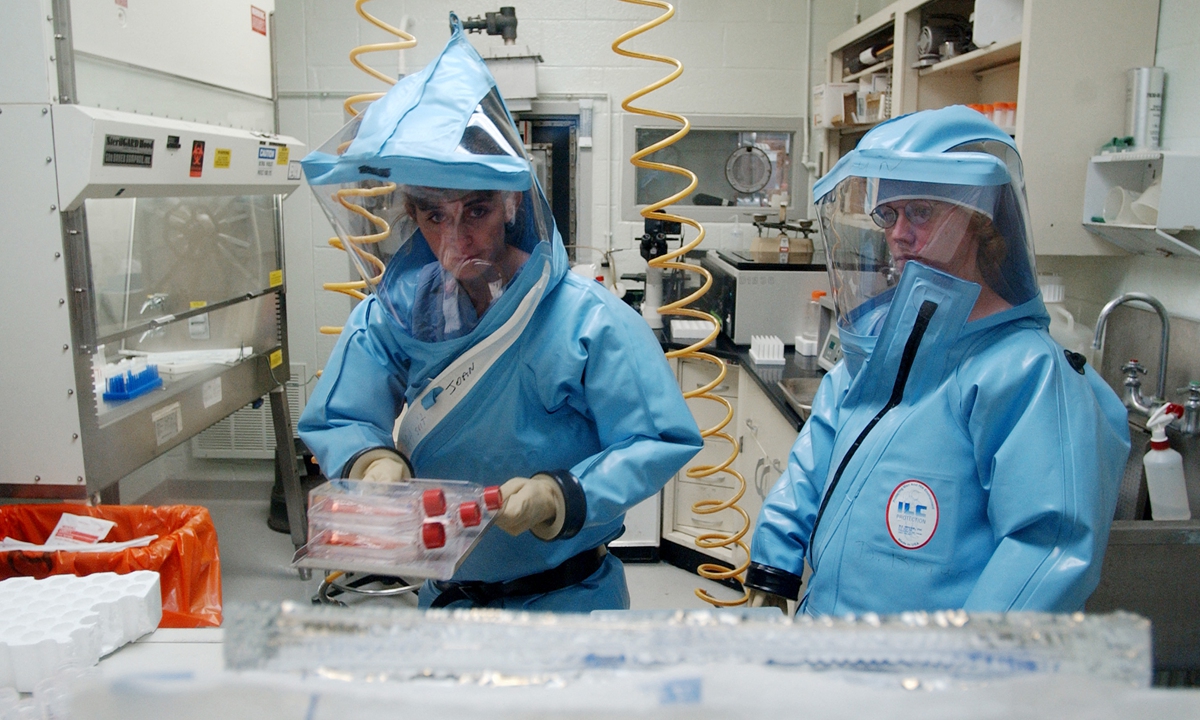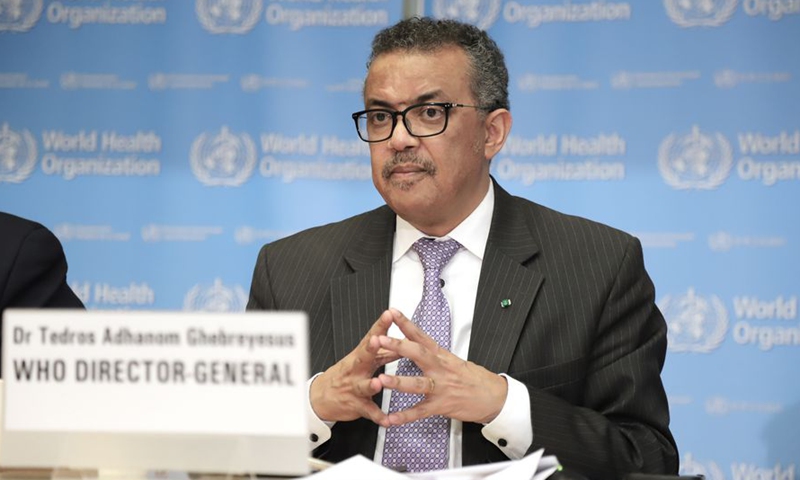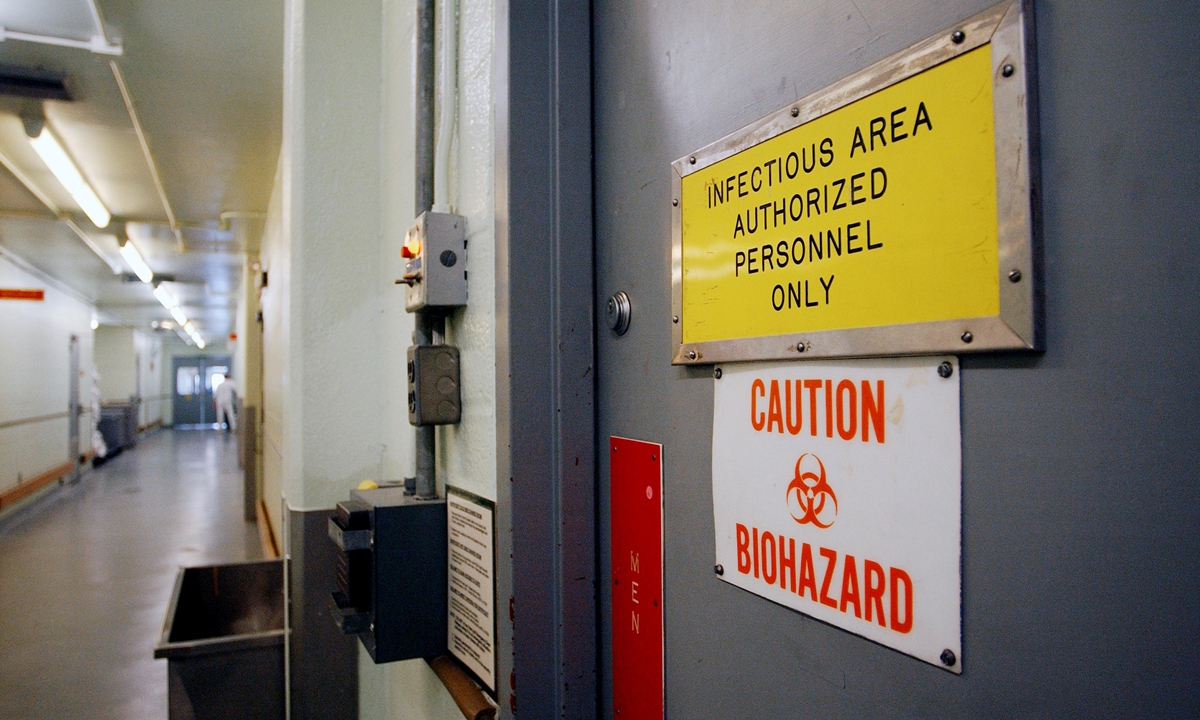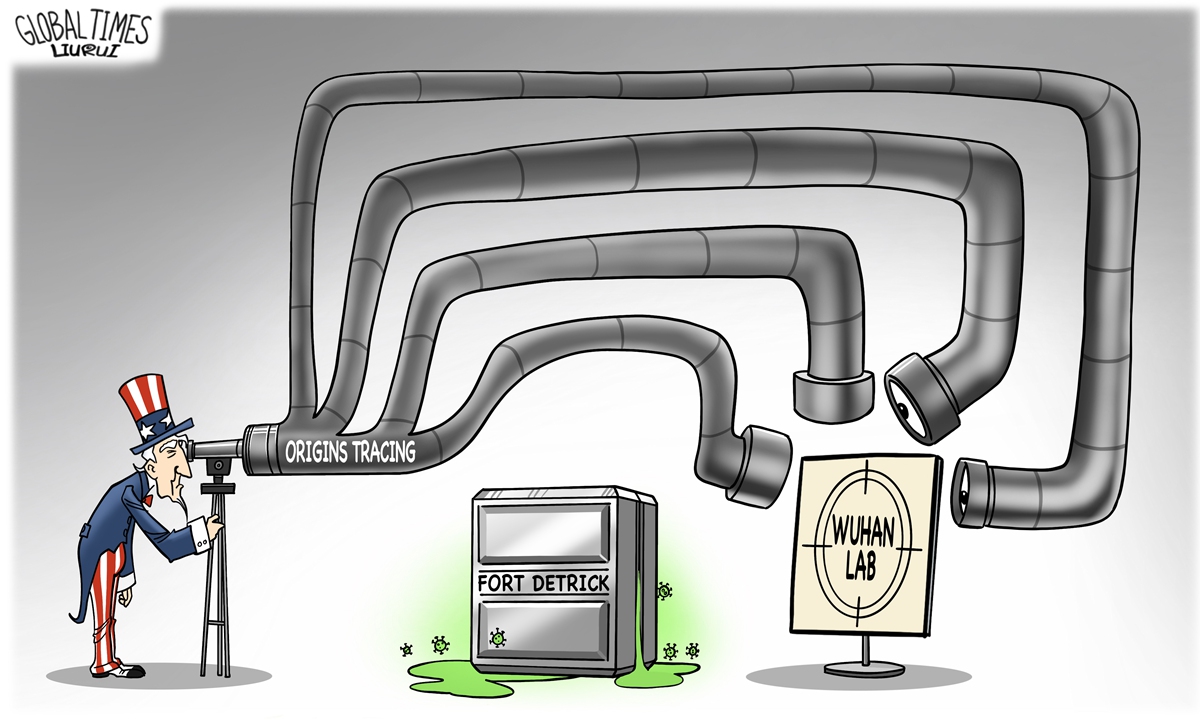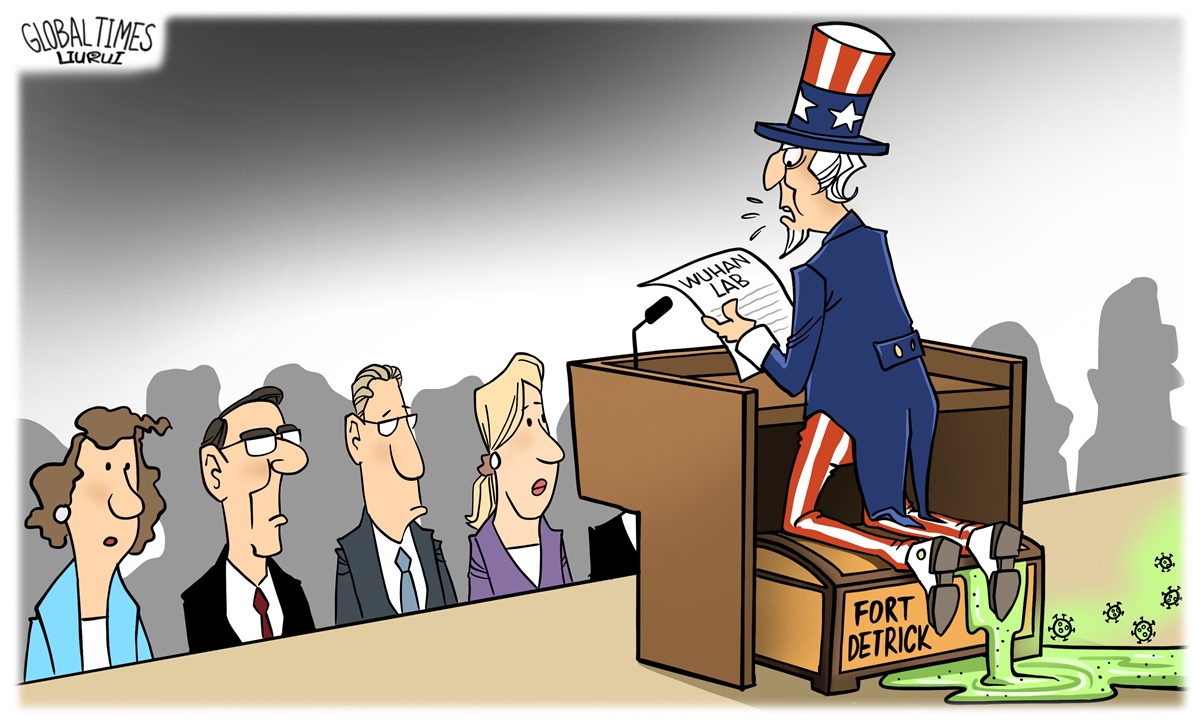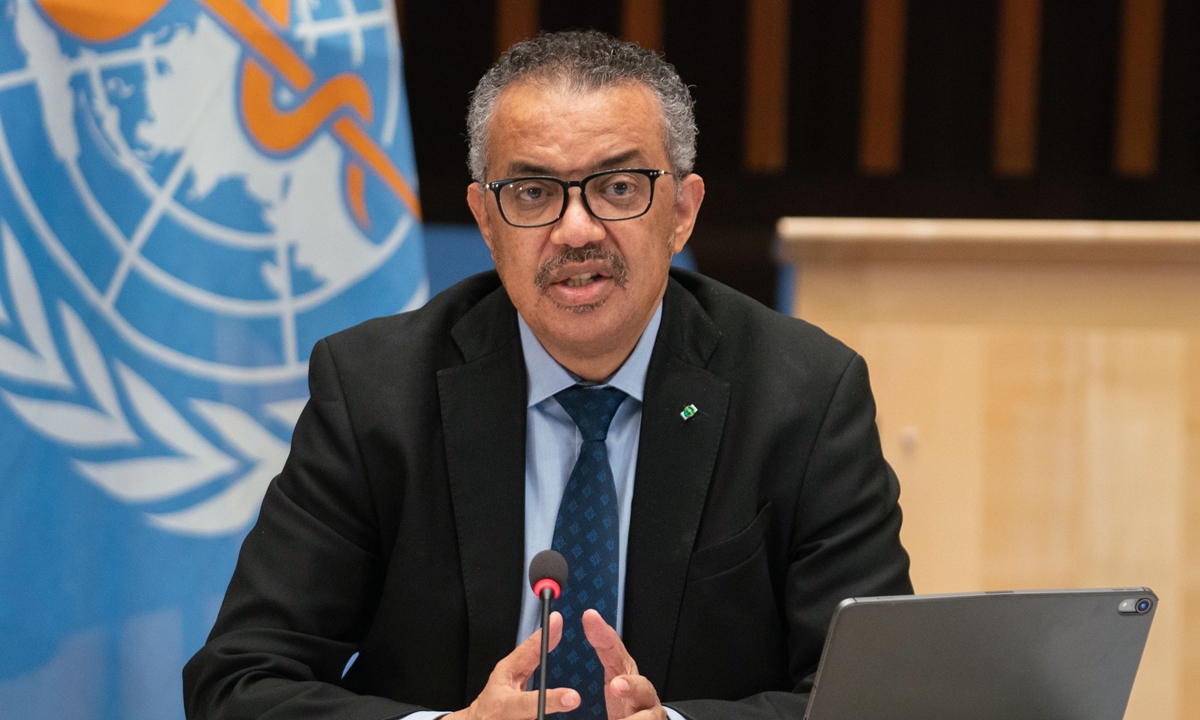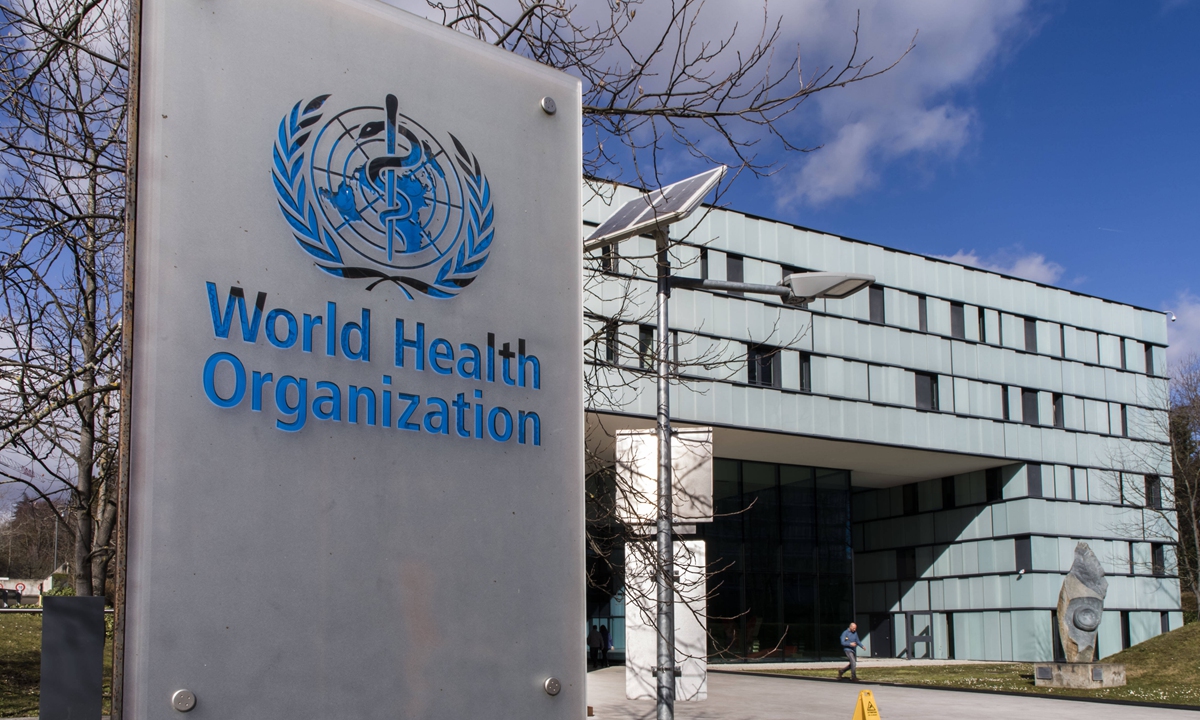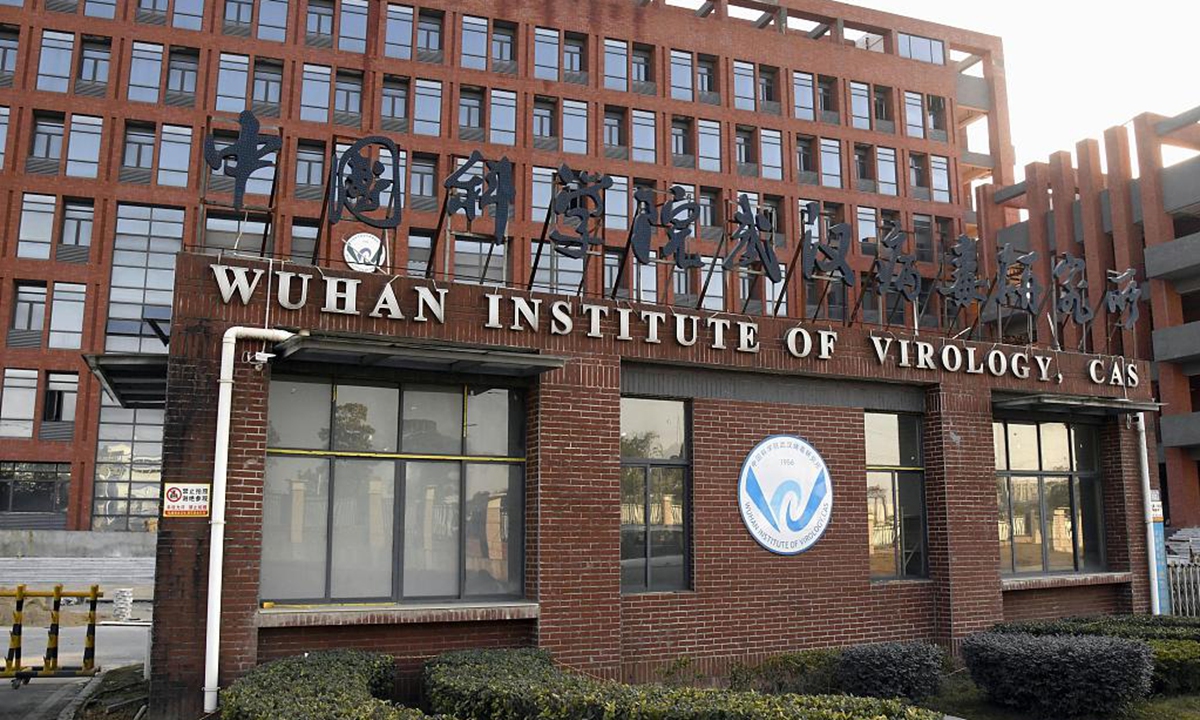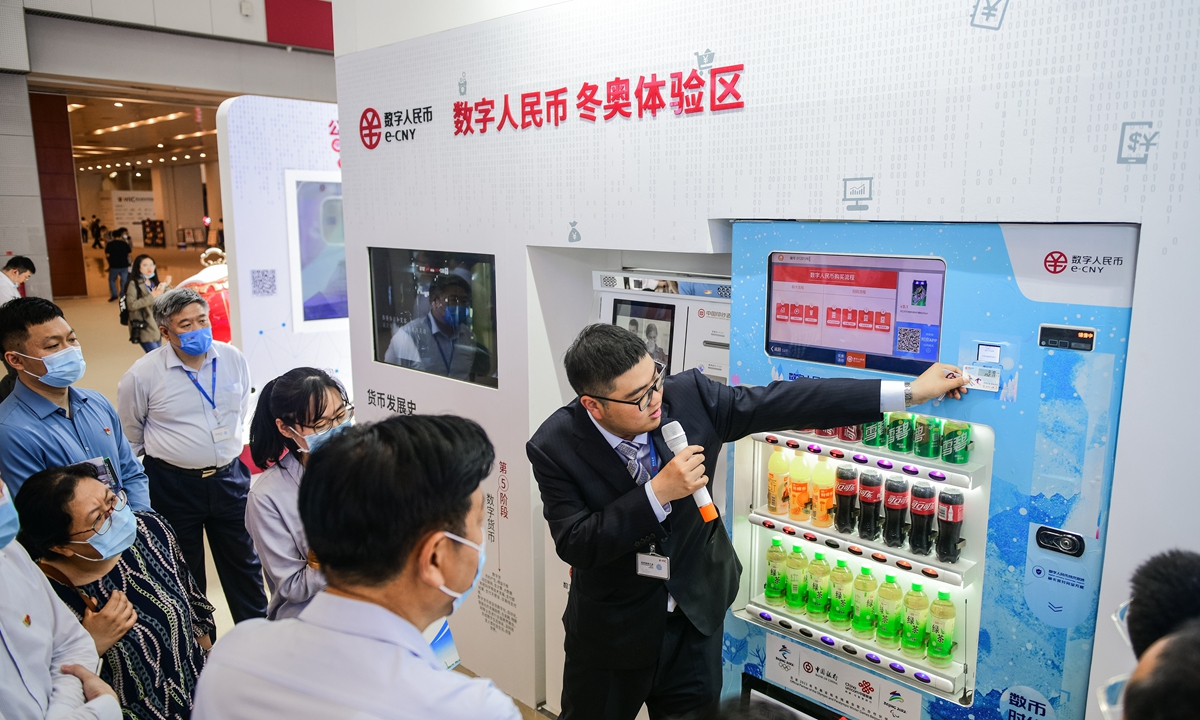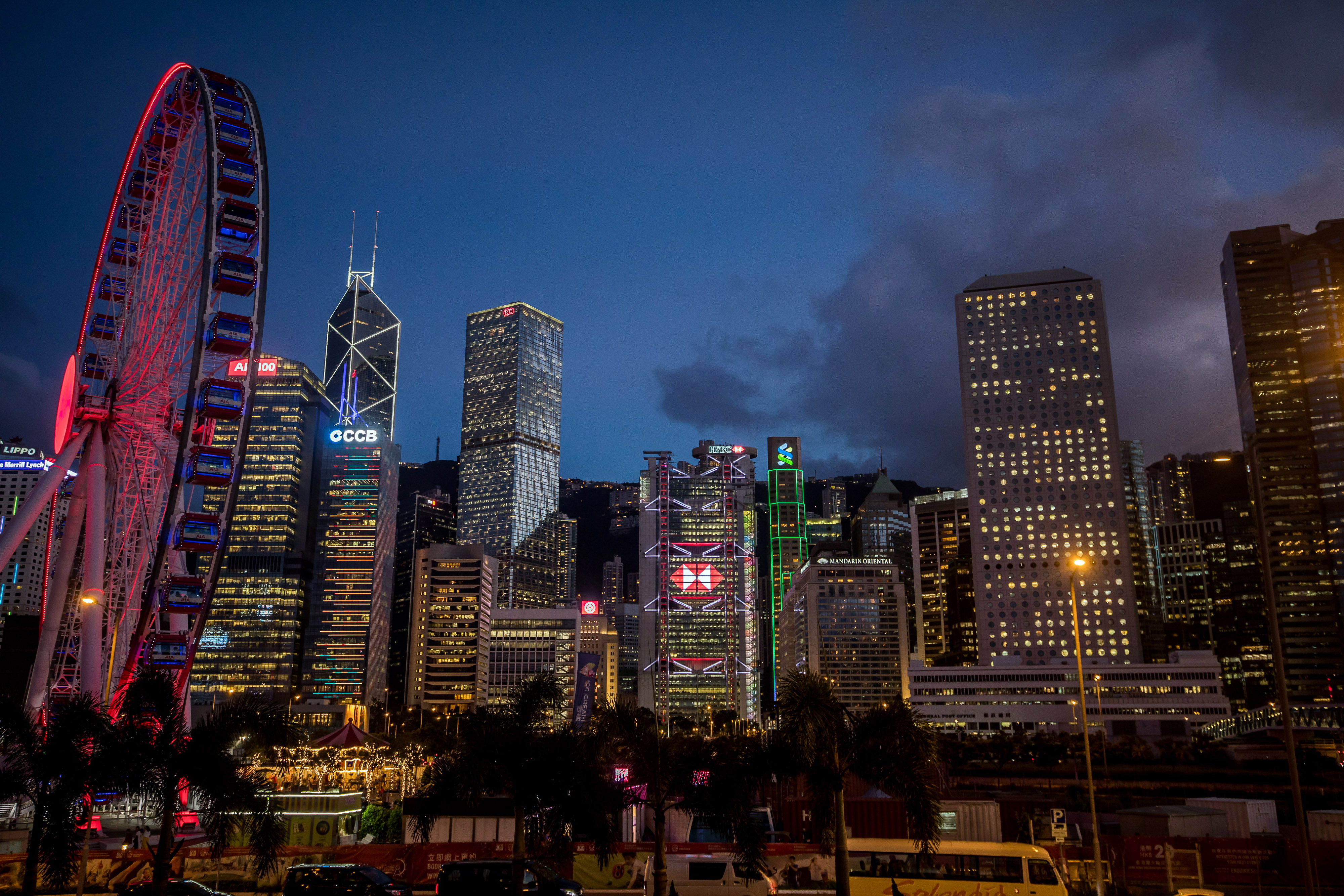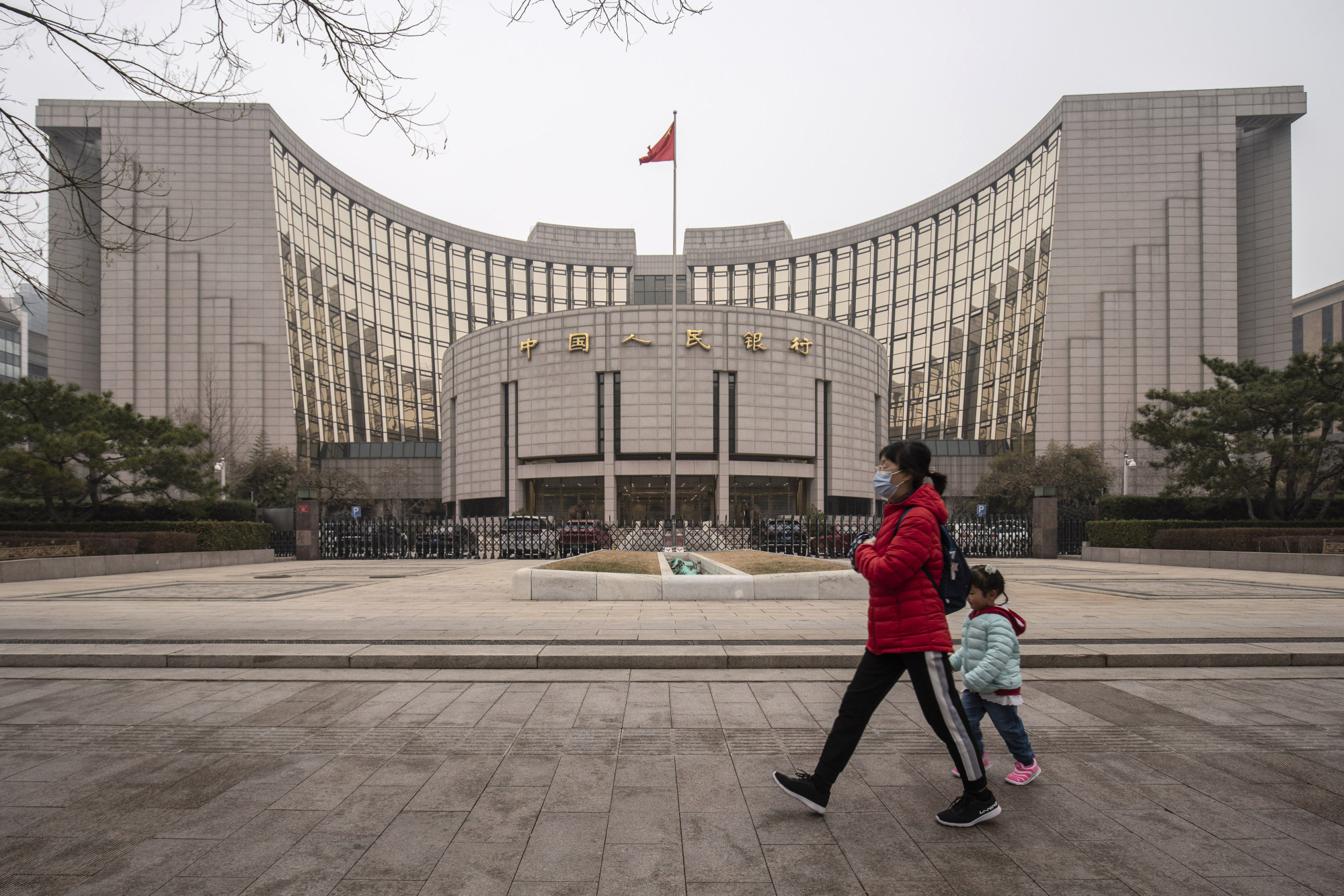US State Department spokesperson Ned Price said on Wednesday that Deputy Secretary of State Wendy Sherman would seek to show China on her upcoming visit to the country "what responsible and healthy competition can look like." He also noted that the US wanted to ensure there were "guardrails" in the relationship and that competition did not spill over into conflict.
`
From our perspective, there's nothing wrong with the literal meaning of these words. China does not want competition to spill over into conflict as well. It would be good for both countries and the world if the two sides could work together to set up "guardrails" to prevent the kind of escalation that is widely feared.
`
Yet, experience suggests that Washington often says one thing and does another, using beautiful concepts as their brand of bullying and forcefully reshaping the meaning of those concepts. For example, Washington often talks about "rules," but the world has seen the US consistently commit the most brutal violations of the rules on which the United Nations system is based. The rules they talk about are actually a framework for protecting the interests of the US and its major allies. They are also a behavioral norm to force other countries to maximize those interests.
`
If China and the US want to set up "guardrails" between their competition, they must follow the principle of equality and mutual benefit and follow the spirit of the UN Charter. Washington must not unilaterally set boundaries for China's behavior, nor can it advocate its interests to harm China's core interests even more.
`
Such "guardrails" would be a unilateral guardrail for the US but a prison circled by a wire fence for China. If Sherman had come to China with such a purpose, the Deputy Secretary's trip would probably have achieved little more than a taste of Tianjin's delicious steamed stuffed bun.
`
The "guardrails" between China and the US to prevent conflicts must include the following contents:
`
First, the US should stop interfering in China's internal affairs, abandon its obsession with "transforming China" and refrain from narcissism with the outward aggression of American values. It is the fundamental principle for building a security wall between major countries to respect each other and refrain from interfering in each other's internal affairs.
`
Second, the US military should not press closer to China's core interests, but should keep the necessary distance. Especially in the Taiwan Straits, the US should not give secessionists in the island of Taiwan a sense of military dependence and encourage them to stir up the tension. That would be very dangerous. In the South China Sea, the US cannot directly intervene in disputes. If it tries to influence the direction of the situation in the South China Sea through military pressure, it will lead to a high risk of conflict.
`
Third, the US must not turn its competition with China into an aggressive suppression of China's development. Its attempts to gang up allies to keep China out of the world's major supply chains will eventually lead to a fundamental conflict with China if they go any further. A conflict like that would produce a wide divergence, destabilizing and creating long-term uncertainty in international relations, and ultimately shaping China and the US as life-and-death strategic enemies.
`
In general, the US cannot attempt to attack China's system, or divide China, or block its development path. These are the foundations of the "guardrails" between the two countries. If the US breaks these three rules, it is proactively attacking China, not competing with it. And China will fight back no matter the cost.
`
So, the US needs to have basic honesty. It should not try to deceive itself. For example, if the authorities on the island of Taiwan under Washington's support or instigation cross the redline of "independence" - the People's Liberation Army will definitely stop it with force. If the US intervenes, a military confrontation between China and the US will take place.
`
China has no intention to confront the US, but it is a national principle for China to defend its core interests. The US can't unilaterally define the "guardrails" between the two countries out of its own interests, because they need to be defined by both China and the US to advance the interests of both countries. The US has extensive experience in international relations, and hopefully, Washington will not be confused about the core problem of how to engage in competition, instead of conflict, with Beijing.
Source link
Results of Sherman’s China visit depend on US attitude
US Deputy Secretary of State Wendy Sherman will visit North China's Tianjin from July 25 to 26, a visit arranged after the US proposal to exchange views on China-US relations, according to the Chinese Foreign Ministry late Wednesday night. Sherman is scheduled to visit Japan, South Korea and Mongolia from July 18 to 25. Meanwhile, US Defense Secretary Lloyd Austin is leaving for his trip to Singapore, Vietnam and the Philippines on Friday.
`
This time, the US is taking the initiative in proposing exchange of views on China-US relations. This shows that the Biden administration has made some progress in evaluating its China policy and may begin to implement these policies next.
`
Washington is eager to communicate with Beijing because it is increasingly aware of the need to cooperate with China on many issues.
`
The US may also want to use Sherman's visit to pressure China on issues such as Xinjiang, the Taiwan Straits, and South China Sea.
`
US State Department spokesperson Ned Price said in a briefing on Tuesday that the US will engage with China "when it's in our interests to do so, and we do remain interested in doing so in a practical, substantive and direct manner." During Sherman's talks with her Japanese and South Korean counterparts in Tokyo on Wednesday, the three sides agreed that they oppose "any unilateral attempts to change the status quo" in the East China Sea and the Taiwan Straits.
`
This is a typical feature of the US' current China policy. "Our relationship with China will be competitive when it should be, collaborative when it can be, and adversarial when it must be," as US Secretary of State Antony Blinken said in March.
`
Despite pressuring China on Xinjiang, the Taiwan Straits and the South China Sea, Washington may also believe it won't affect pragmatic cooperation with Beijing in some other areas.
`
However, China will make its principles clear during Sherman's upcoming visit. China focuses on cooperation, controls competition, and avoids confrontation in handling China-US relations.
`
During the recent weeks, Washington has intensified its blame on China in terms of the so-called massive cyberattack. It has also issued a blanket warning to US firms about the risks of doing business in Hong Kong, and passed a bill that would ban all goods from or made in Xinjiang unless importers can prove they weren't made with "forced labor." We must show the US that China firmly safeguards its sovereignty, security and development. We firmly oppose the US' interfering in China's internal affairs and harming our national interests. These are all basic principles that China will make clear.
`
During Sherman's visit, China and the US may have practical discussions on some specific issues including climate change, Afghanistan, Iran and improving the working environment of diplomatic personnel and institutions in the two countries. China will make a very thorough clarification on its principles, while also leaving some room for China-US cooperation on specific issues.
`
Defense Secretary Austin previewed his Southeast Asian trip on Wednesday, saying that he will, "make clear where we stand on some unhelpful and unfounded claims by China in the South China Sea." Clearly, the South China Sea will be a key point of his trip. Vietnam and the Philippines are two countries that Washington wants to rope in the most in terms of the South China Sea issue.
`
Together with Sherman's Asia tour, the US aims at showing Asian countries that it will continue attaching importance to the region, and making it clear to China that it will carry on the Indo-Pacific Strategy to pressure China.
`
After Chinese top diplomats resolutely refuted the US' rude manners during Alaska talks in March, the two countries almost haven't had any face-to-face senior-level dialogues since. The US Department of State said Sherman's visit is "part of ongoing US efforts to hold candid exchanges" with China in order to "advance US interests and values and to responsibly manage the relationship."
`
Nonetheless, the US' attitude won't be different from that during Alaska talks. Strategic competition with China is still the keynote of US' China policy. This won't change. Thus, the US will not stop interference in China's internal affairs, and will continue piling pressure on Xinjiang and other issues.
`
The "candid exchanges" are possible if the two sides exchange views frankly. As for "responsibly managing the relationship," it may be hard to do. This will depend on whether Washington plans to properly handle its ties with Beijing. If Washington's China policy is dominated by the use of pressure and rhetoric of competition, then relations between the two countries will only worsen.
`
After White House Coordinator for the Indo-Pacific Kurt Campbell said in early July that China and the US can "coexist in peace," Washington is now proactively seeking dialogue with Beijing. But this does not necessarily mean Washington is becoming more rational toward Beijing. For example, Campbell said, "We do not support Taiwan independence," yet the US has sent more military aircraft to the island. Similarly, the US is calling for dialogue while it is still trying to impose more pressure on China.
`
On many issues, Washington says one thing and does another, making it unreliable.
`
The article was compiled by Global Times reporter Li Qingqing based on an interview with Wu Xinbo, director of the Center for American Studies at Fudan University in Shanghai. opinion@globaltimes.com.cn
Source link
Related posts:
THE GLOCALISATION OF HUMANITY
China's tough stance in Alaska turns heads
US can't accept painful fact that China is now its equal: Martin Jacques
China-US high level strategic dialogue: Chinese diplomats deal vigorous counterblows to condescending US representatives; common ground hard to reach on contrasting logics

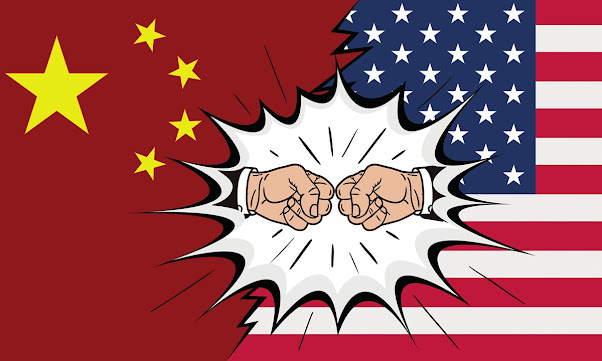 Illustration: Chen Xia/GT
Illustration: Chen Xia/GT

